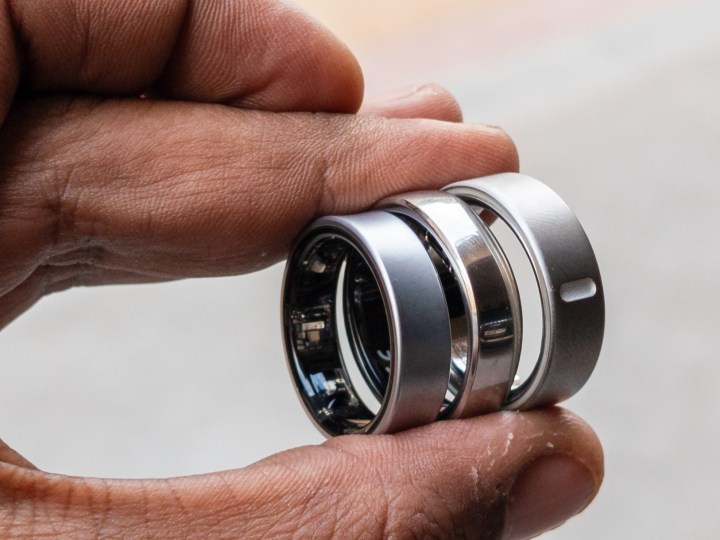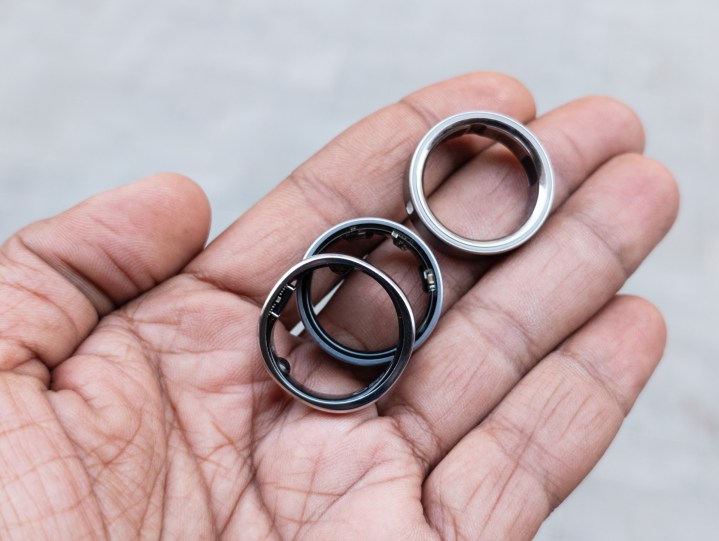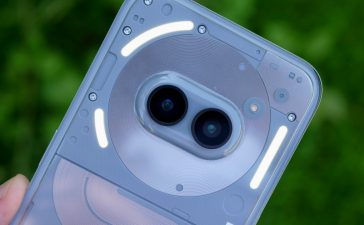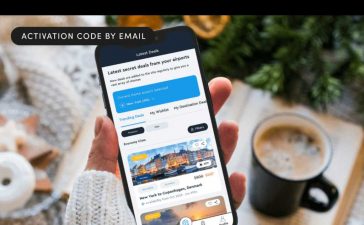Have you ever wondered how traveling affects your body? In particular, not just the symptoms and effects that you can immediately feel, but rather, the nuances that technology can help you understand. When was the last time you took a flight, didn’t sleep enough, and ended up feeling extremely tired for days on end?
To answer these questions, I took the skies, quite literally. My travel schedule over the past six weeks has been hectic. After attending CES 2025, I flew to London, fell ill, and then had to fly back to the US to see the launch of the Galaxy S25 series. The only problem? I needed to be in Dubai for a family vacation two days after Galaxy Unpacked, and the only way to do it was four flights in two days.
A crazy journey meant an opportunity to explore the impact of travel on health, and in particular, an opportunity to compare three of the best smart rings. Is the Oura Ring 4 the best, or is it the second-generation RingConn smart ring? How does the Galaxy Ring — Samsung’s first generation smart ring — compare? Here’s what happened.
The craziest travel schedule I’ve ever undertaken

My travels took me from San Jose to London and Norway, followed by a night’s rest — if you can call three hours of sleep that — and a day trip to Dubai via Doha. Four flights, five cities, far too many timezones, and the craziest travel schedule I’ve ever completed.
I fly a lot, and when I booked these tickets at different times, I didn’t understand just how stressful and tiring this trip would end up being. More than a week later, I still have residual jet lag effects, compounded by the fact that I’ve taken yet more flights and have now made it to India for the first time.
Throughout all of this travel, one thing has proven clear: flying, jet lag, and air pressure changes can manifest in several ways. In particular, I’ve noticed that my fingers swell considerably, and when they do, each of these rings has a different impact.
Very different feelings with swollen fingers

It was the day after my last flight to Dubai that I began to notice a throbbing pain in my fingers. A little sleuthing later, I realized that they had begun to swell, a common occurrence in people with heart disease or diabetes. Interestingly however, the pain wasn’t caused by the swelling in the fingers, at least not directly, rather the swelling meant that some rings were pushing against the swollen parts of my fingers.
I’ve previously celebrated the Galaxy Ring as it was supremely comfortable with swollen fingers, and far more so than the previous generation Oura Ring. However, the updated Oura Ring 4 utilizes integrated sensors, whereas the Galaxy Ring still has small ridges that house the sensors. While the concave design means that it’s still more comfortable than the Oura Ring 3, this was the first trip where I found the Galaxy Ring to be uncomfortable.
The Oura Ring 4 proved that a sensorless design is the way forward. While the ring itself feels a tad thicker — a necessity given the integrated sensors and the desire to build as many pathways for data tracking — the lack of sensor bumps means it remains more comfortable than Samsung’s smart ring, even with swollen fingers. This is the biggest improvement over the Oura Ring 3, and it’s the first time I’ve been able to notice this with the latest from Oura.

However, the biggest surprise was the RingConn Gen 2. It’s 2mm thin at its thinnest and this makes a big difference when you have swollen fingers. The Oura Ring 4 is 2.7mm thick, while the Galaxy Ring is 2.6mm thick, and the 0.6mm difference to the RingConn Gen 2 makes the latter far more comfortable when your fingers are a little swollen. Similarly, it’s slightly narrower at 6.8mm — versus 7mm or more — and this also helps when your fingers are swelling.
Throughout the past four weeks of travel, it’s the only one of these three that has remained comfortable with every change in my finger, through lack of sleep and in general use. My Oura Ring 4 has some scratches that leave me very concerned about its durability potential, but the shiny exterior on the RingConn Gen 2 still has no blemishes or scratches.
Tracking my sleep… or severe lack of it

I’ve always wondered; when I travel, how do I sleep? This trip and these smart rings represented a huge opportunity to understand this, and the results were interesting.
First, let me dig deeper into the travel schedule I booked. I first had a ~10-hour flight from San Francisco to London, departing at 5:30 pm and arriving at noon. I then had a 3.5-hour stopover in London before a two-hour flight to Oslo. A night’s rest should have followed, and then an 8 am flight to Doha, a two-hour stopover, and a one-hour flight to Dubai arriving at 9 pm.
The biggest challenge with a schedule like this is not the flying time, but the time difference. My flight to London landed at 4 am San Francisco time and I eventually landed in Dubai at 9 am the following day. Unsurprisingly, this flight schedule was not conducive to getting proper sleep, and the result was needing to nap on each flight.
Here’s how each Smart Ring reported my sleep during the first night:
| RingConn Gen 2 | Galaxy Ring | Oura Ring 4 | |
| Time Asleep | 2 hours 10 minutes | 1 hour 37 minutes | 1 hour 47 minutes |
| Time in Bed | 2 hours 58 minutes | 2 hours 6 minutes | 3 hours 1 minute |
| Efficiency | 73% | – | 59% |
| Sleep Score | – | 23 | 30 |
| Awake: | 13.4% | 29 minutes (23%) | 1 hour 14 minutes |
| REM: | 10% | 10 minutes (7%) | 10% |
| Light Sleep: | 3.3% | 1 hours 27 mins (70%) | 50% |
| Deep Sleep: | 73.3% | – | 40% |
First, it’s very clear that I didn’t sleep anywhere near enough, but how does the reporting on each smart ring stand up to how I felt? I think the Oura Ring 4 had the best accuracy as I was a mess once I landed in London. Curiously, Samsung didn’t track any deep sleep, so take from that what you will, whereas RingConn recorded a solid set of metrics but didn’t report a sleep score.
How about the following day, which included a forced nap in Heathrow airport and during the flight to Oslo, but also resulted in very little sleep that night in Oslo?
- 1.
RingConn Gen 2 - 2.
Samsung Galaxy Ring - 3.
Oura Ring 4
The frustrating thing about all three smart rings is that none report all of your sleep in one easy-to-understand view but rather, they all separate your sleep into individual blocks. The Oura Ring 4 was the only one to report three sets of sleep, with the first two being my in-flight sleep that was broken up by food service.
The last takeaway from this test is also that the Oura Ring 4 didn’t recognize any of my naps as naps, but rather as full sleep. I’ve no idea why that is or how it determines between the two, but it’s worth keeping in mind nonetheless.
Very different battery life and charging

The last takeaway from this test helped shape my decision about the best overall: battery life. I started this test with the Oura Ring 4 at half battery life and I had to search for my charger once I had landed in Dubai as it was too low to track another night’s sleep. For the Oura Ring 5, this is my chief complaint that I hope the company fixes.
The Galaxy Ring fared much better as it lasted for another two days before dying (having started at around 60%), while the RingConn Gen 2 lasted a further day and a half before also succumbing to a dead battery.
- 1.
Oura Ring 4 - 2.
Galaxy Ring - 3.
RingConn Gen 2
Crucially, both of these also outperform the Oura Ring 4 when it comes to storage, transportation, and charging. Each comes with a charging case that makes it easy to transport as well as charge your Ring while in your bag, whereas the Oura Ring 4 requires a square charging puck that is improved over last year, but is a big missed opportunity.
This is the smart ring that I’d pick

I went into this test expecting that I would opt for the Oura Ring 4, followed by the Galaxy Ring, and then the RingConn Gen 2. It turns out that I was wrong: the RingConn Gen 2 is the best smart ring of these three mainly for the comfort it offers me when I have swollen fingers.
This isn’t to say that it’s the best overall, as the sheer number of metrics on the Oura Ring 4, or the integration between the Galaxy Watch and Galaxy Ring, will appeal to many users. For most people, however, the RingConn Gen 2 offers everything you could want from a smart ring and does so for both iPhone and Android users.
RingConn rightly received many plaudits for its first smart ring, which was widely recognized as the best affordable smart ring. The second generation stepped it up significantly, and the feature set, battery life, and charging case now make this a no-brainer. On that note, where’s my Oura Ring 4 charger?











